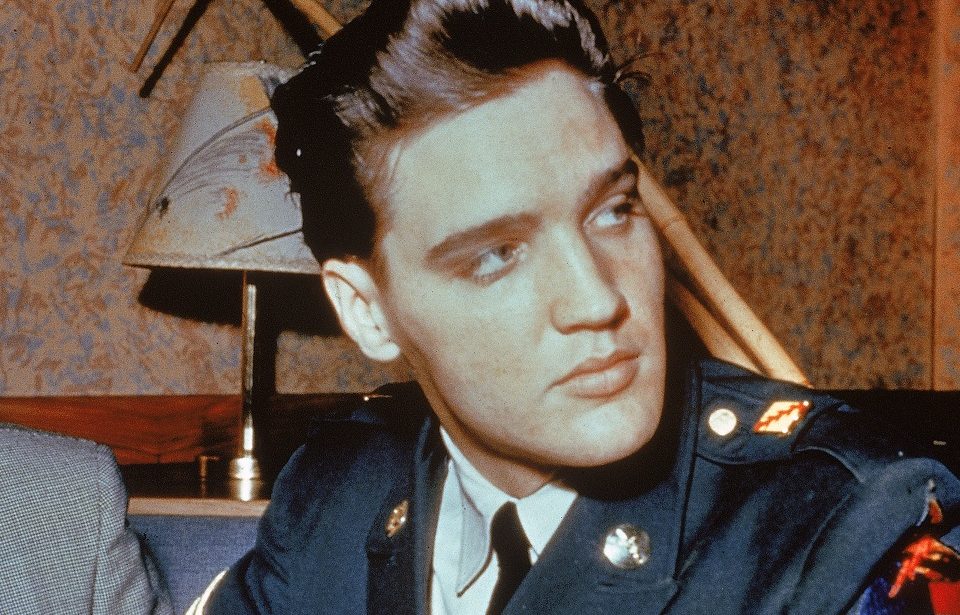A number of Hollywood’s biggest stars were drafted into the US Army during the middle part of the 20th century. This includes the King of Rock and Roll himself, Elvis Presley. Presley was drafted toward the end of 1957, and despite his star power insisted on being treated like an other service member. That doesn’t mean, however, that his service was the same as that of non-famous soldiers.
Elvis Presley is drafted into the US Army
When Elvis Presley was drafted into the US Army just before Christmas of 1957, it was a massive moment in the music industry. By this time, he was already an international celebrity and his career was about to reach new heights. Many of those invested in Presley’s success feared that induction into the military could kill his career before it had truly taken off.
As a successful musician, Presley was offered the chance to join the Special Services, the US military’s entertainment branch. Despite this ensuring he’d be kept from frontline service, the King of Rock and Roll’s manager urged him to enlist as a regular soldier.
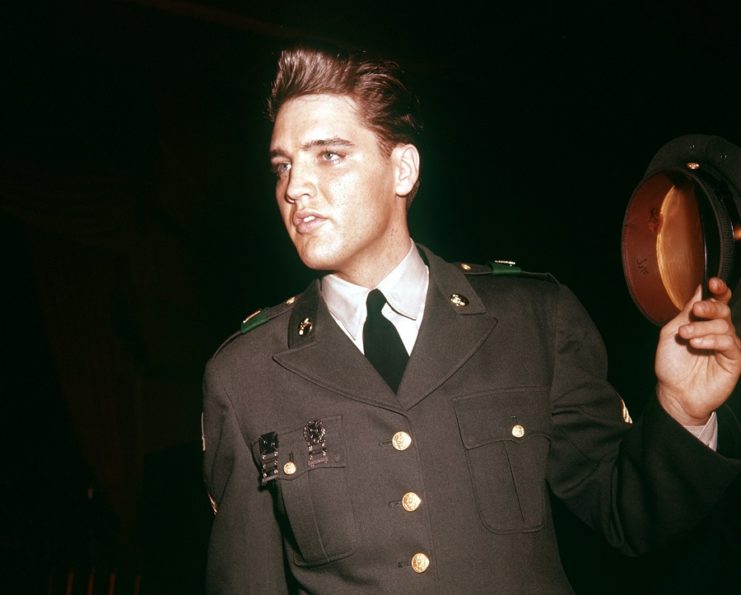
Presley arrived at Fort Hood, Texas on March 24, 1958 and was assigned to the 2nd Armored Division’s “Hell on Wheels.” His arrival was a major press event, and many fans showed up to witness it. He completed basic training and traveled to Europe onboard the USS General George M. Randall (AP-115). Upon his arrival, he was sent to Friedberg, Germany to serve with the 3rd Armored Division.
Elvis Presley’s military service
Publicly, Elvis Presley was happy with his stint in the military, particularly enjoying the portions of tank training. However, behind the scenes, he was not as content. He reportedly missed home and his family, and disliked training. As well, he was understandably worried about his career – or lack thereof – when his service was over.
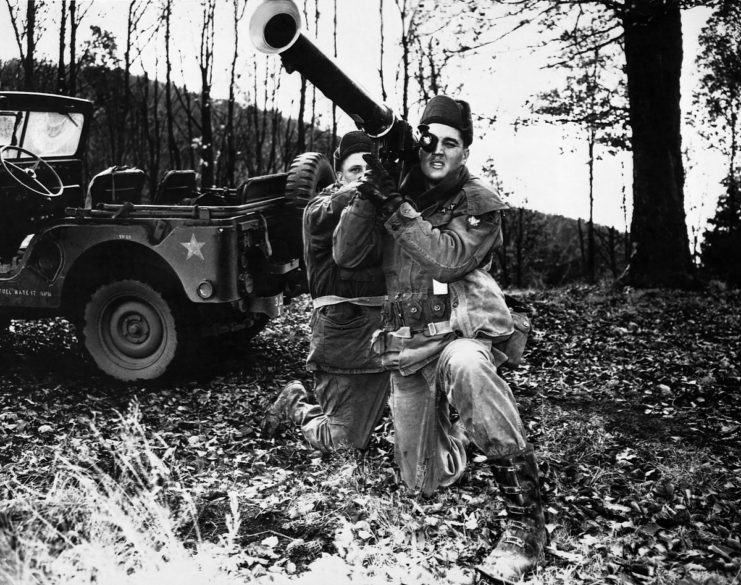
Presley was genuinely determined to complete his service as a regular soldier, but, in reality, he had many unofficial benefits not afforded to other troops. Still, he was known to be extremely generous and provided those in his unit with television sets and extra fatigues. He also donated his wages to charity.
However, his service wasn’t all positive. While performing military exercises, Elvis was introduced to illicit substances, which he held in high regard for their energy and weight loss “benefits.”
Making America’s enemies uncomfortable
Elvis Presley’s presence in West Germany made America’s enemies uncomfortable, particularly the Soviet Union and East Germany. This created some serious tension between the US and the USSR, as the latter suspected the former was using Presley to lure defectors over the border.
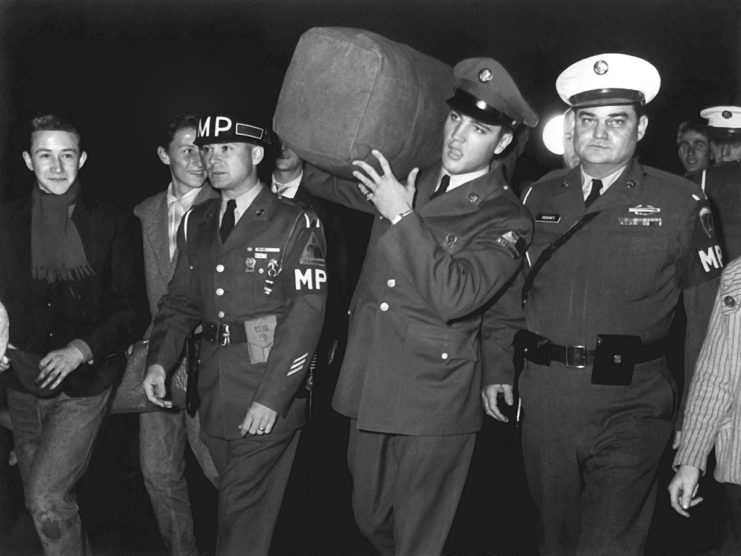
East German Defense Minister Willi Stoph said Elvis and his music were a “means of seduction to make the youth ripe for atomic war.” Communist Party leader Walter Ulbricht added that it was “not enough to reject the capitalist decadence with words, to … speak out against the ecstatic ‘singing’ of someone like Presley. We have to offer something better.”
To counter rock and roll’s racy dancing, Communists created the Lipsi, a government-approved dance that was slightly more fun than standing on Legos. It was aimed toward young people and meant to win back rock and roll fans… Unsurprisingly, the dance not only never caught on, but was openly mocked.
Elvis Presley returns to the United States
Elvis Presley was discharged from the Army in March 1960 in what was a highly publicized event. Many were still bewildered by his decision to serve as a regular soldier, and he was asked why during the press conference. He responded:
“I was in a funny position. Actually, that’s the only way it could be. People were expecting me to mess up, to goof up in one way or another. They thought I couldn’t take it and so forth, and I was determined to go to any limits to prove otherwise, not only to the people who were wondering but to myself.”
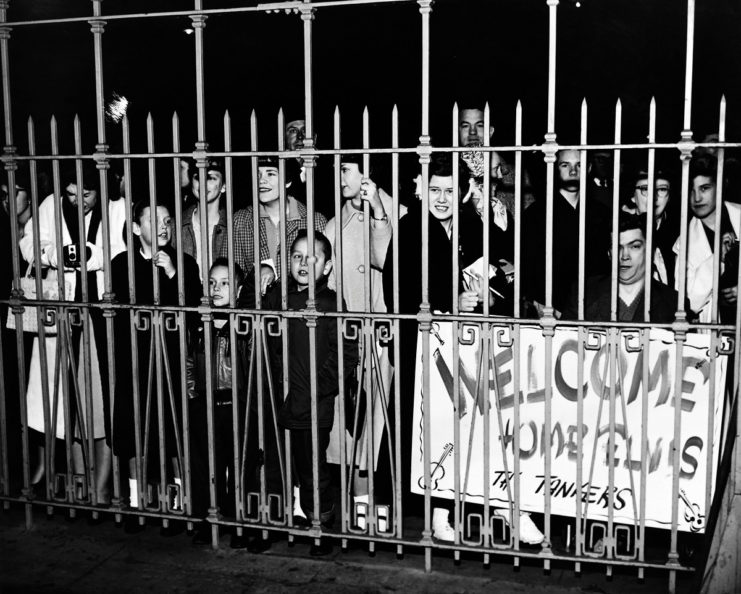
On March 5, 1960, Presley was honorably discharged from active duty. Although he was terrified that his career had been killed by the military, his popularity had only risen while he was serving; his manager had secured plenty of material to drip-feed to the public while he was away.
More from us: Wilbert “Doug” Pearson Is the Only Pilot to Have Scored an Air-to-Space Kill
Presley’s popularity also took an unexpected turn during his service. Before he’d left, he was an extremely controversial figure – loved by teenagers and feared by parents. Becoming a symbol of rebellion, older generations believed Presley was a threat to the moral well-being of adolescents and was corrupting the nation.
However, when he returned, he’d gained considerable respect among older generations for his service. While many were still fiercely against Presley and his pelvic antics, his military career had actually given him a boost in fame.
